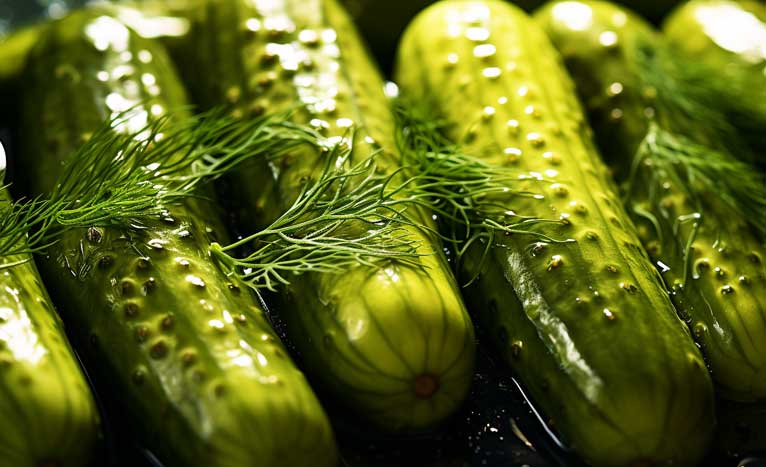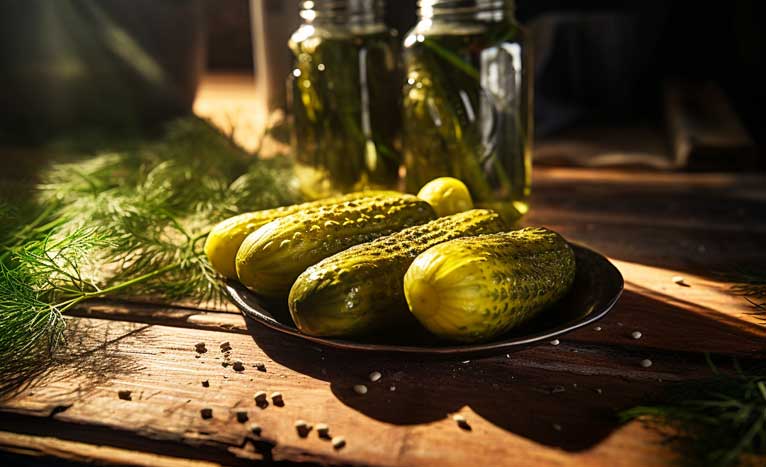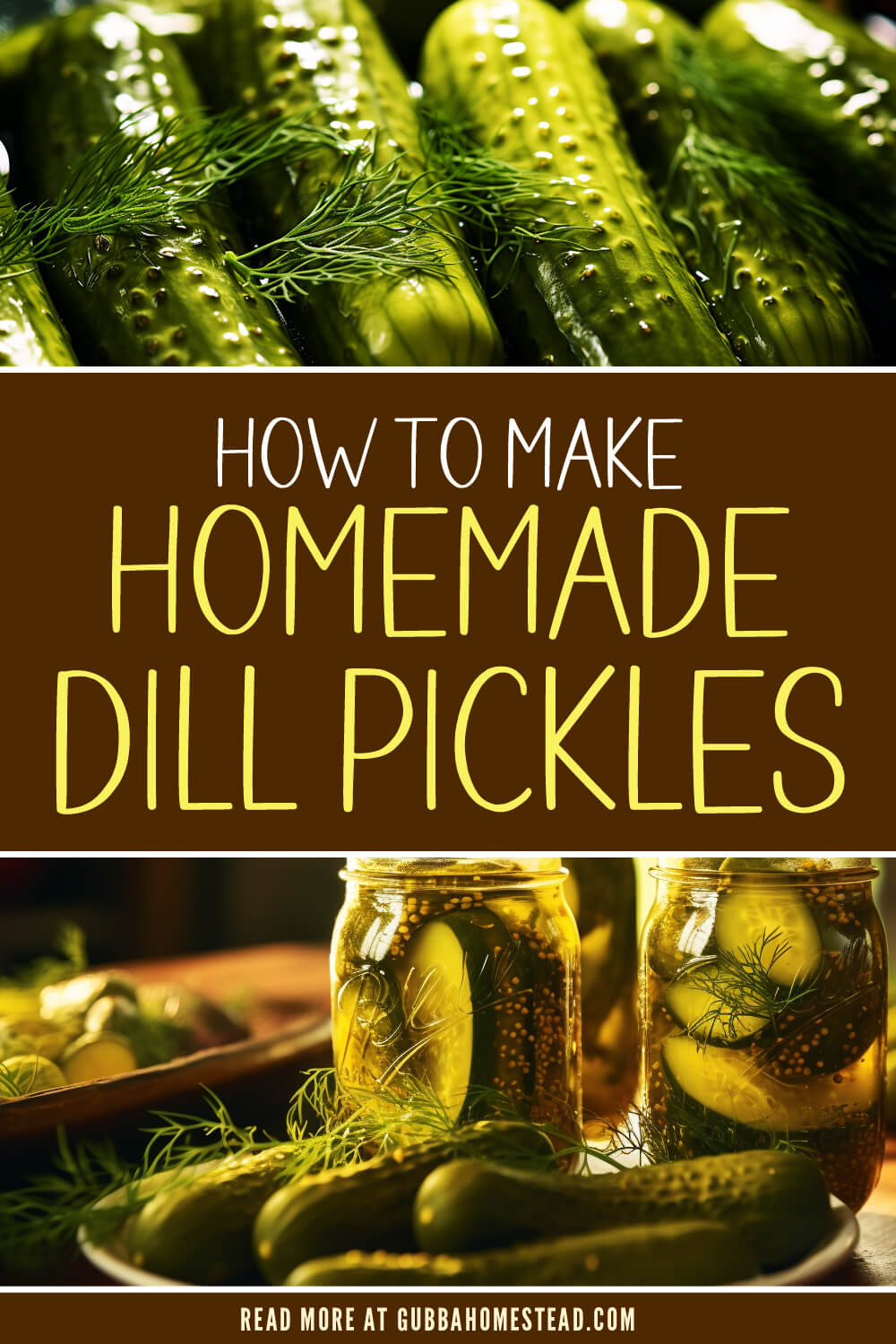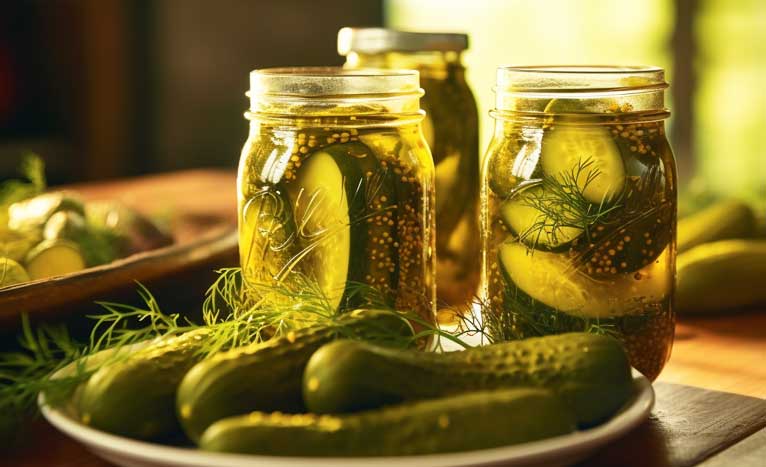How to Make a Homemade Dill Pickle: Unveiling the Art of Homesteading
Oh, dear friends, gather 'round as we embark on a delightful journey into the heart of homestead cooking. In the heart of my cozy kitchen, where the warmth of family and the aroma of homemade goodness converge, I'm here to share with you the cherished art of creating the most mouthwatering hamburger dill pickle slices. On the Gubba Homestead, I believe in the power of preserving tradition and flavor, and I am thrilled to guide you through each step of crafting pickles that will truly steal the show.
How do you choose the best cucumbers for making homemade dill pickles?
The secret to any successful dish lies in the ingredients, and it's no different with our beloved hamburger dill pickle slices. Head to your garden or the local farmer's market to handpick firm, crisp cucumbers. These green gems will be the canvas upon which we'll paint our flavor masterpiece. If you don’t have the option of a garden or a farmer’s market, check out a local grocery store and select high quality cucumbers.

What's the ideal way to slice cucumbers for dill pickle slices?
As a proud homemaker, I understand the value of hand-preparing each ingredient. After giving those cucumbers a good wash, let's get slicing. I prefer them in thin rounds, but spears work just as well if that's your fancy. Remember, it's the love you infuse that makes all the difference. Sometimes, I prefer to slice the cucumber thinner than 1/4 inch. I would experiment with different slice sizes to figure out what you and your family prefer!
How do you create a wholesome brine blend for dill pickles?
Now, let's talk brine – that enchanting elixir that transforms cucumbers into pickles. In a trusty pot, combine the tang of white vinegar with a touch of water, and don't forget a generous pinch of salt. This humble concoction will lay the foundation of our pickle magic.
In my recipe, I love to use a variety of pickling spices with produce like smashed garlic and onions. Obviously, you will be throwing in fresh dill to give that dill taste!
What's the difference between dill seed and dill weed in pickle-making?
Dill weed pertains to the leafy components of the dill plant, while dill seed, as you might have surmised, refers to the tangible seed itself. It's important to note that these two are not interchangeable in this context; it's crucial to obtain dill seed.
If you have the opportunity to utilize a recently harvested dill plant, you can opt for the blossomed segment, known as the "head," as a substitute for dill seed. To provide an equivalent measurement, three heads of fresh dill are equivalent to 1 to 2 tablespoons of dill seed.
How long does it take for dill pickles to reach their peak flavor?
Allow your jars to rest in a cool, dark corner of your pantry. Time is our ally in this venture. Wait a few weeks – it might be hard, but it's worth it. As the days pass, those flavors will mingle and mature, resulting in a pickle symphony that'll make your heart sing. Sometimes you will catch me snacking throughout those weeks because I simply can’t help it—they are delicious! Also, check out my other recipe Gubba's Famous Pickles
FAQs
Can I use any type of cucumber for making pickles?
Absolutely! However, pickling cucumbers are recommended for their texture and size.
How long do homemade sliced dill pickles last?
When stored correctly, they can last up to 2-3 months in the refrigerator.
What can I do with leftover pickle brine?
Don't toss it! It makes a fantastic addition to marinades, salad dressings, and cocktails.
Can I adjust the level of spiciness in my pickles?
Of course! Experiment with different amounts of peppers to suit your taste.
Is mold in the brine normal?
Mold growth is not normal and indicates contamination. Always ensure cleanliness during the pickling process.
From my humble kitchen to yours, I've shared the time-honored secrets of crafting hamburger dill pickle slices that tell a story of tradition, family, and the simple joys of homesteading.
May your journey be filled with the same warmth and satisfaction that has graced my table for years. So go on, take the reins of this treasured recipe and savor every bite. Your homestead deserves nothing less.

Homemade Dill Pickles
Ingredients
- 2 pounds pickling cucumbers
- 1 tbls canning salt or kosher salt
- 1 1/4 quarts water
- 1 cup apple cider vinegar
- 1/2 cup white vinegar
- 1 1/2 cups water
- 1 tbsp sugar
- 1 tbsp canning or kosher salt
- 3 tsp dill seeds
- 1.5 tsp pickling spices
- 3 tsp minced garlic
- 3 tsp dried minced onion
- 3 pint mason jars, lids and bands
Instructions
- Slice the cucumbers into 1/4-inch thick slices.
- Place the cucumber slices in a bowl. Mix one tablespoon of salt with the water and stir until the salt is dissolved. Pour the salt water over the cucumber slices, cover, and let them sit for 2-3 hours. Drain the cucumbers and discard the salt water.
- On the stovetop, combine the apple cider vinegar, white vinegar, water, sugar, and salt. Cover the pot and bring the mixture to a simmer until the sugar and salt are dissolved. Remove from heat and set aside.
- In the bottom of each pint mason jar, add 1/2 teaspoon of dill seed, 1/4 teaspoon of pickling spices, and 1/2 teaspoon each of minced garlic and dried minced onion. Divide the cucumber slices among the jars.
- Carefully use a funnel to pour the vinegar mixture over the cucumber slices, leaving about 1/2-inch of space between the pickles and the top of the jar. Wipe the rims of the jars with a clean damp cloth or paper towel. Place a lid on each jar and tighten securely.
- Allow the jars to sit for 3 weeks before opening.
- The pickles can be stored in the refrigerator for up to three months. Alternatively, you can use the water bath canning method for preservation. Properly canned pickles are good for up to a year as long as sealed properly. Store in a cool, dry place.


